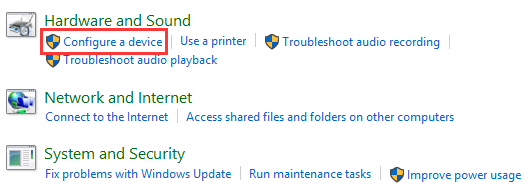

- #SAICOO CARD READER PROBLEMS HOW TO#
- #SAICOO CARD READER PROBLEMS DRIVERS#
- #SAICOO CARD READER PROBLEMS UPDATE#
- #SAICOO CARD READER PROBLEMS DRIVER#
- #SAICOO CARD READER PROBLEMS FULL#
To list all system-wide registered PKCS#11 modules the following command can be used: $ p11-kit list-modules More information about supported applications and uses of the URI can be found in separate blog post. They are used by most of the tools in RHEL 8+ and simplify configuration of applications for smart cards. The PKCS#11 URI scheme is used to consistently identify smart cards, tokens and objects on them in the system. That is, CAC, PIV, and cards with the CoolKey applet or PKCS#15 cards.

One sample for Red hat engineering to enable the hardware and one sample for Red Hat Quality Engineering.
#SAICOO CARD READER PROBLEMS FULL#

In RHEL8 and newer smart cards are accessed via the OpenSC PKCS#11 module. The list of supported hardware in the upstream project.
#SAICOO CARD READER PROBLEMS UPDATE#
Red Hat will periodically update the USB identifiers from the upstream project into our pcsc-lite-ccid driver. Most CCID compatible readers will work without any issue. In Red Hat Enterprise Linux, we follow the pcsc-lite upstream project in regards to smart card reader hardware support.

For example the OpenSC module as shipped by RHEL8.0, provides support for Yubikey, Nitrokey, and the US-government PIV and CAC cards and many more, on a single module.
#SAICOO CARD READER PROBLEMS DRIVERS#
In the open source world, we have projects like OpenSC, which wraps several smart card drivers into a single shared module. That shared module can be imported by applications, and be used to communicate with the card directly.
#SAICOO CARD READER PROBLEMS DRIVER#
Smart card vendors, often provide a shared module (.so file), which follows the PKCS #11 API, and serves as a driver for the card. The main method in RHEL for applications to access smart cards, is via a higher level API, the OASIS PKCS #11 API, which abstracts the card communication to specific commands that operate on cryptographic objects (private keys etc). The PC/SC low level communication is rarely seen on the application level. The daemon forwards the commands received to the card reader typically over USB, which is handled by low-level CCID driver. On the lower level, the operating system communicates with the smart card reader, using the PC/SC protocol, and this communication is performed by the pcsc-lite daemon. Smart cards are typically handled on multiple layers and by multiple components, and for that we would like to provide a brief background to provide context for the following discussion. If you search for smart card support for RHEL 7, please use the article 3034441.
#SAICOO CARD READER PROBLEMS HOW TO#
In addition it provides information on how to investigate a potential incompatibility between the cards and RHEL. In Red Hat Enterprise Linux 8 and newer, we strive to support several popular smart cards types, however, as it is not possible to support every smart card available, this document specifies our targeted cards.


 0 kommentar(er)
0 kommentar(er)
